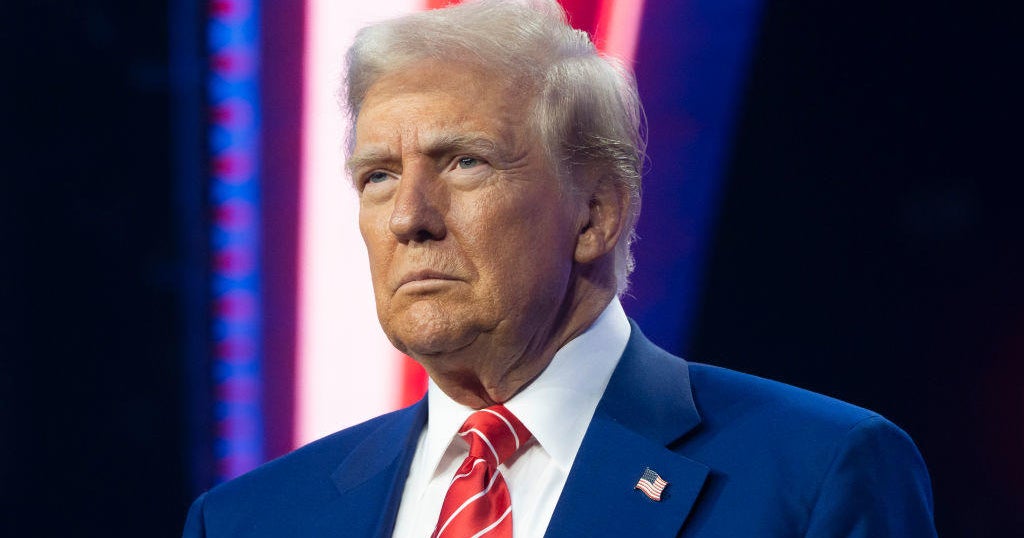Controversial NYC policy forces some unsheltered people to receive mental health care
America's overall homeless population is smaller today than it was a decade ago, but more people are choosing the streets over public shelters. Since 2015, there has been a 35% increase in an unsheltered population that sleeps in tents, tarps, boxes, cars and public transportation.
According to the latest estimates by the Department of Housing and Urban Development, more than 233,000 people are living on streets across the country — a source of heartache or frustration for many.
Local leaders nationwide have promised a fix, especially after a series of high profile crimes— including killings in Los Angeles and New York, where the suspects were homeless men with a history of mental illness.
Several communities have used laws against public camping to clear the streets although—but none have gone as far as New York City Mayor Eric Adams.
Adams not only launched an effort to clear tents and other structures, but also stepped up interventions on the subway, pushing people toward what he says are supportive and voluntary services.
Adams also issued a directive last November about "involuntary removals." The directive says police officers can take people into custody "for the purpose of a psychiatric evaluation" if they appear to be mentally ill and are "conducting themselves in a manner likely to result in serious harm to self or others."
Adams' office said it was issued "in accordance with state law and court precedent" and "clarifies" that outreach workers, city-operated hospitals and first responders "have the legal authority to provide care to New Yorkers when severe mental illness prevents them from meeting their own basic human needs to the extent that they are a danger to themselves."
"As a city, we have a moral obligation to support our fellow New Yorkers and stop the decades-long practice of turning a blind eye towards those suffering from severe mental illness," Adams said in a news release last November.
But Donna Lieberman, executive director of the New York Civil Liberties Union, believes medical personnel are in a better position than police or the public health system to make tough calls about what kind of care a person needs.
"What the mayor is doing … is throwing more police at a problem that requires a public health solution," she said.
In his efforts, Adams has found an ally in Shams DaBaron, a homeless advocate who has been informally advising the mayor's office. In years past, Dabaron might have been someone flagged for evaluation under the city's "involuntary removals" policy. He used to sleep on the streets in Harlem.
"I didn't trust anybody, so I wasn't looking for services," he said about the time he was unsheltered. "I was comfortable where I was at."
Like others, he chose to live on the streets rather than in shelters, where some say they don't feel safe. But his situation got worse as he developed severe depression.
"I just wanted to hurt myself and do away with it," DaBaron said.
He eventually got help by walking himself into a mental health facility. He accepted treatment for depression and drinking which he credits with saving his life.
DaBaron came off the streets in 2019. Now, he wants others to benefit from the same sort of care–even if it means the hand of the government has to get them there.
DaBaron said his goal and the mayor's goal"is to say: we're going to do something about this. We're going to get these people help. We're going to try to stabilize their lives and ultimately we want to get them housing."
He believes "serious federal intervention" is needed to address an inadequate supply of affordable housing, to prevent more lives being lost to homelessness.
"We're going to see a lot more people dealing with trauma and mental illness and substance abuse, and it's just going to create a bad situation for all of us," he said.
Lieberman said not having nearly enough housing for people who need it, with support services, is the real shame.
"That's the real crime," she said. "That's what's undermining the dignity of too many New Yorkers who are vulnerable and forced to live on the streets."
Adams declined an interview with CBS News but said in a statement the city is expanding capacity at medical facilities while also boosting crisis services and behavioral health emergency teams that work with police to help determine whether people should be taken for an evaluation. He said the goal of his multi-phase plan is "to help those with serious mental illness who are living on the street."
"This is the next phase of how we are going to help people in need before they fall into crisis, by ensuring everyone has access to healthcare, community and a home," he said.
Adams said New York City Health and Hospitals, which provides 55% of all the mental health beds for the city, will be soon "expand capacity in the coming months to meet demand."




